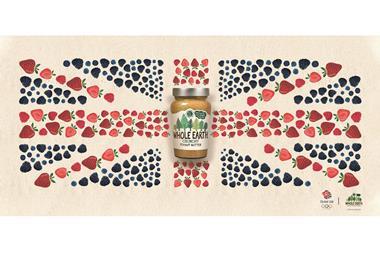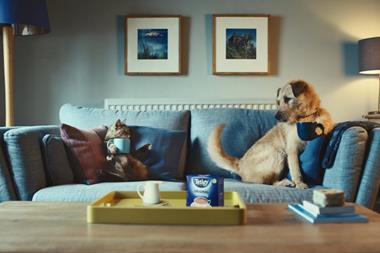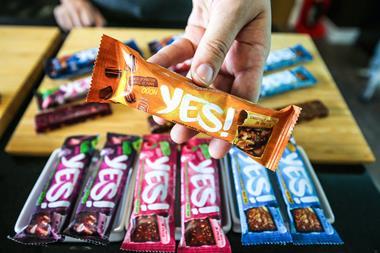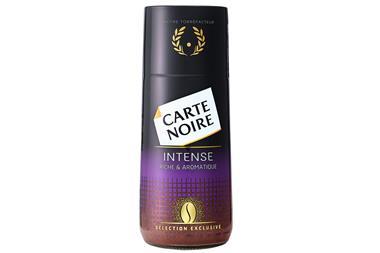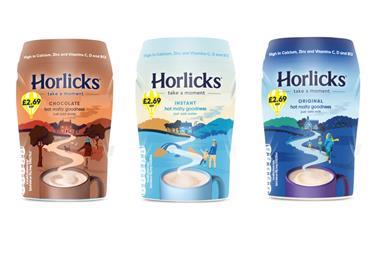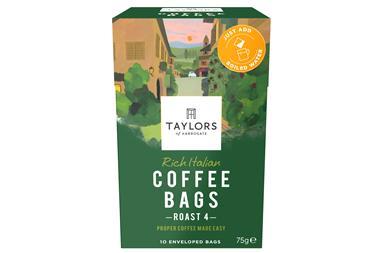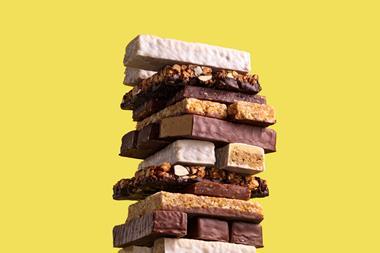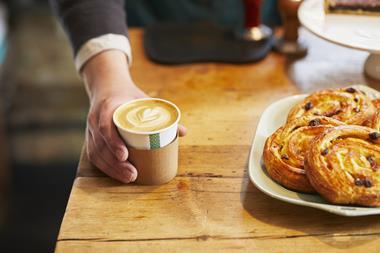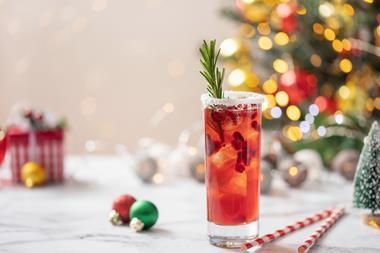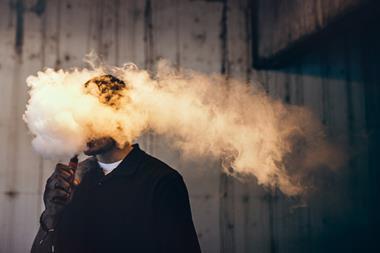With coffee chasing tea for sales, and healthier options joining the line-up, the hot beverages category is overflowing with choice.
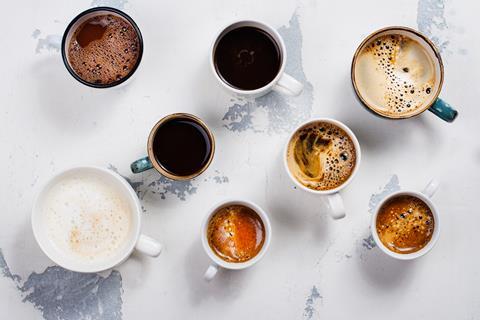
There is nothing more traditionally British than a cup of tea, in fact a staggering 100 million cups are consumed in the UK every day, according to the International Tea Committee.
However, with UK daily coffee consumption increasing to 95 million cups in 2018, up from 75 million in 2008 (British Coffee Association), the case for coffee is undoubtedly strengthening.
Greg Harvey, channel controller at Yorkshire coffee and tea company Taylors of Harrogate, says packaged hot beverages as a whole are performing “strongly” within convenience, and highlights the rise of premium products.
“We’ve been hearing from retailers across the sector that there is a desire for more premium quality products that are affordable and easy to use,” he says. “That’s why stocking premium coffee is key for retailers to consider.”
James Sweeting, ceo at coffee manufacturer Lincoln & York, confirms the transition from basic to superior. “About 25 years ago, instant coffee was the norm and premium and filter coffee was a weak beverage, if you were lucky,” he says. “But in 2019, lattes, flat whites, cold brew and frappuccinos are dominating the sphere.”
He believes the boom in the coffee scene is down to the explosion of coffee formats available, making it more accessible to all consumers.
“Believe it or not, speciality coffee was once hard to come by in the UK and was only available in high-end coffee shops,” he adds. “Coffee brands have ramped up innovation to cater to the growing consumer demand for more premium products.”
Chris Stemman, executive director of the British Coffee Association, agrees. “In the past decade we’ve gone from a country of tea sippers who enjoy the occasional instant coffee, to a nation of seasoned coffee connoisseurs exploring a large variety of roast and ground blends both in and outside the home.”
Kenco Millicano is one such brand to be benefiting from the premiumisation trend, seeing sales growth of 0.8% in the latest 12 weeks (Nielsen 52 weeks ending 13 July 2019).
Convenience retailers such as Dave Singh, owner of a Simply Fresh store in Stratford-upon-Avon, are also beginning to cash in on the trend. Dave stocks a range of packaged coffee products, from Nestlé Coffee Mate Original (sold at £1.79) to Nescafé Gold Origins Alta Rica (sold at £5.79), with the pricier lines doing particularly well.
“Coffee continues to sell really well,” he says. “People in our area gravitate towards the expensive, premium brands of coffee and it sells in high volumes.”
The instant fix for cooling hot chocolate sales
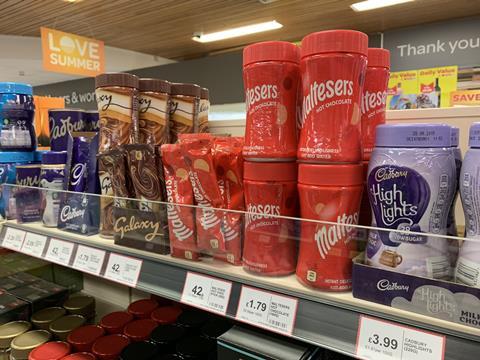
A hot beverage that appears to have dipped in popularity is hot chocolate.
Rachel Fletcher, store manager of the Village Store at the University of Sheffield, says: “Hot chocolate seems to be a treat for a lot of people nowadays, as opposed to tea which people would drink every day,” she says. “Perhaps it is the health aspect.”
According to Mintel, sales of hot chocolate and malted drinks have depressed since 2014 and this is expected to continue through to 2024 (Mintel, Tea and Other Hot Drinks, UK, July 2019).
However, Michelle Frost, general manager at Mars Chocolate Drinks and Treats, believes hot chocolate continues to be popular in homes across the UK.
She says that in 2018, UK households purchased more than 28,000 tonnes of hot chocolate, cocoa and malted products, while the total hot milky drinks category has an annual sales value of £186m, with hot chocolate representing 66%, equating to an annual sales value of £123m (Kantar Worldpanel, Food Beverages, Total Market, 52 weeks ending 30 December 2018).
For Frost, the star performer in convenience is Galaxy Instant Hot Chocolate. “It is an established category favourite winning favour with consumers,” she says.
“Galaxy Instant Hot Chocolate continues to be one of the fastest growing brands up 14.8% year on year (Kantar Worldpanel, Food Beverages, Total Market, 52 weeks ending 30 December 2018).”
When it comes to merchandising strategies, Frost advises displaying a range of hot chocolate near tea and coffee. “For most impact, offer several of the core hot chocolate segments – instant, add milk, indulgent, malted and cocoa.”
A taste for the top end
At Zed Khan’s Best-one store in Bolton, it’s also the higher end coffees that sell best. He says: “We sell a lot of premium coffee. It is something that people clearly don’t seem to mind spending a bit more money on, as the prices are often significantly higher than everyday stuff.
“Once people have found a taste for the nicer, more premium coffee such as Nescafé Azera and Lavazza, they tend not to sway. Once they’ve found what they like they stick with it – and luckily for us it seems to be the premium stuff.”
Zed’s experience is backed up by Jacobs Douwe Egberts category and shopper marketing team lead Michael Haynes. He says: “Within the instant coffee category, consumers continue to trade up to higher pence per cup coffee segments (Nielsen Pence per Cup data, 52 weeks ending 18 May 2019), reflecting the ongoing premiumisation trend.”
For Dave Hunt, assistant retail manager at Spar, Hull University, there is demand for both premium and budget, with prices ranging from 40p to over £7.
“From what I see in our data, both packaged coffee on the cheaper side such as Spar own-brand packs, as well as the well-known more expensive brands have their place, as people are still buying both,” he says. “For us in a student store, our customers are probably more price conscious than most, so they would be more inclined to purchase the Spar own brand as it’s half the price of the branded stuff.”
But it’s a different story when the more expensive products, like Kenco, Taylors of Harrogate and Nescafé Gold are reduced. “Cut prices and students will choose branded over own brand. If Kenco goes down to two quid, naturally people will think ‘go on, I’ll treat myself’,” Dave adds.
Mike Humphreys, owner of Premier Kenninghall Stores in Norfolk, has also witnessed demand for more premium lines. While everyday hot beverages remain his day-to-day best-sellers, he claims that “there will always be a market for premium as some people are willing to pay for it”.
Alongside the rise of packaged premium brews has come the rise of decaf, across the entire packaged hot beverages market.
Zed has seen this rise first-hand, describing a “large increase” in sales of caffeine-free alternatives at his Bolton store.
“Sales have gone up hugely in recent years,” he says. “I don’t drink coffee myself so don’t know the difference between decaf and regular, but our customers seem to be swaying towards decaf a lot more now.”
But it’s not just coffee without caffeine that’s in demand. Greg Harvey reveals a rising demand for decaf tea among consumers.
“There’s a growing demand for decaf alternatives as people want the same great taste and quality, but not always with caffeine.”
In a bid to meet demand for decaf tea, Taylors of Harrogate launched a Yorkshire Tea Decaf pricemarked pack (PMP) last year, which is available with a rrp of £1.89. The PMP is a 40s pack and is a “great size and price for independent and convenience retailers,” according to Harvey. He says stocking pricemarked packs is a great way to give shoppers confidence that they are getting the very best value for money and says such is its success that sales have tripled in the past year.
While decaf tea has seen a rise in sales this year, traditional tea still remains ahead of the rest.
According to Harvey, traditional English breakfast tea remains the nation’s favourite brew and continued demand from consumers keeps it an essential for convenience stores to stock.
“Black tea with milk is still the nation’s favourite,” he says. “Yorkshire Tea is the nation’s second biggest standard black tea brand (IRI 52 w/e 25 May 2019) and continues to be in huge demand from consumers. It makes sense for c-stores to ensure they’re stocking what customers want.”
That is certainly the case for Dave Singh, who highlights the importance of stocking traditional English breakfast teas. “With brands like Twinings, it is English breakfast tea that’s ahead of the rest.”
Dave Hunt adds: “With Spar own-brand teas, Earl Grey and green are up there as top sellers for us. They go really quickly. But overall, it is the traditional stuff that sells in the highest volumes.”
For Rachel Fletcher, store manager of the Village Store at the University of Sheffield, it is Yorkshire Tea – perhaps unsurprisingly – that is the top seller. She puts it down to the store’s location and the brand’s reputation.
“It makes sense being based in Sheffield,” she explains. “Other big brands do sell well, but even with the students who aren’t from the area, they still recognise the brand and know it’s a quality product they can rely on. The traditional stuff is definitely key here.”
It’s brand name was no doubt given a further boost thanks to the ‘Where everything’s done proper’ TV campaign which ran earlier this year as part of a £3m marketing investment in the brand.
Yorkshire Tea is up there for Zed, too, who adds: “We sell high volumes of the old traditional brands such as Typhoo, Yorkshire Tea and PG Tips. That is where the bulk of our tea sales come from and we know that these are the brands the customers will be looking out for when they come into store.”
But despite black tea seemingly a firm favourite, speciality teas are increasing in popularity, with spending up 4.2% year on year (Kantar 52 weeks ending March 2019 vs 2018).
Suranga Herath, ceo at English Tea Shop, says he has witnessed a rise in sales of functional and speciality teas with clear selling points, describing how these appeal to the “aesthetically-driven millennial customer”.
Dave Singh says likewise. “Specialised teas are big nowadays – ginger, turmeric, night time, fennel and so on are all top sellers,” he says. “You can go into any store or supermarket and pick up a bag of Tetley, PG Tips, Yorkshire, but the specialised teas you have to come here to get.
“They aren’t on offer everywhere. In our area, nobody else sells some of the specialised ranges of tea that we do, so people go out of their way to come to us.”
Nescafé vegan frothy coffee trio heading to the UK
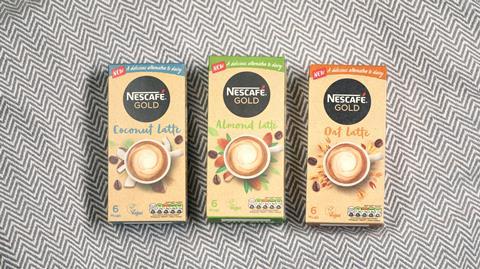
Nestlé has announced plans to shake up the hot beverages market with the introduction of three plant-based frothy coffees mixes sold under its Nescafé Gold brand.
The coconut, oat and almond lattes, which are all certified by The Vegan Society, carry the sunflower trademark on pack.
The non-dairy trio is also being marketed as the world’s first plant-based soluble coffee mixes.
Available to independent retailers from February 2020, the three lattes feature a blend of 100% Arabica coffee beans mixed with plant-based ingredients to create a smooth drink that is also a source of calcium.
Head of the Nescafé business in the UK and Ireland Neil Stephens says: “Our new premium Nescafé Gold frothy coffees bring the plant-based, non-dairy trend out of the coffee shop and into the home.
“The three delicious flavours – oat, almond and coconut – are vegan friendly as well as being a source of calcium.
“Nescafé is the world’s favourite coffee, but we do not take our position for granted. We are quick to spot and embrace fast-moving coffee trends and tastes in this highly competitive and innovative market.”
The trio will be sold in packs of six, rrp £2.98 each.
Out of the ordinary
Mike has also noticed increased interest in the more unusual varieties. “Alternatives have boomed recently and there is definitely a big market for them,” he says. “They are still a long way behind the more normal teas, though.”
But what has sparked the rise in the popularity of speciality tea?
Zed puts it down to the rising numbers of health-conscious consumers looking deeper into what they consume.
“There are many more health-conscious people now,” he says. “Everybody is looking more at what they eat and drink now, even within the packaged hot drinks category, and that means we as retailers have to change what we stock to accommodate that.
“Within this category, we have started to look into healthy tea alternatives as just one way to accommodate this trend.”
Herath agrees. “As consumer attitudes change, this is reflected in the sales of wellbeing teas. Consumers are increasingly health-conscious and seek effective food and drink choices that will promote wellness.
“At English Tea Shop we have seen an increase in sales of our functional teas because of this trend. Our wellness varieties have been increasingly popular, as well as our superfood blends. All of our teas are 100% organic, meeting the growing trend for a healthier lifestyle,” he adds.
A recent Mintel report concluded that an emphasis on wellbeing, innovation and ethical considerations will boost hot beverage sales (Mintel, Tea and Other Hot Drinks, UK, July 2019). Richard Caines, senior food and drink analyst at Mintel, says: “Products focused on health and wellbeing hold potential for growing sales.”
Mike has also noticed a move towards health-conscious purchases in his Norfolk stores. “Interest in health and wellbeing is a continuing trend and has been for the past few years. It is definitely a constantly increasing trend.”
Andrew Byron, commercial manager at Teapigs, says: “While traditional black teas will always be popular, we are also noticing some changes in terms of who is drinking tea and why.
“More and more consumers are looking for drinks that give them specific health benefits, and demand for healthy green and herbal teas is growing. Specific examples of this would be our functional ‘feel good’ tea range as well as our organic premium matcha green tea range.”
It isn’t just health-conscious consumers that retailers need to consider as the move to more sustainable products continues to gain momentum.
Nearly three-quarters of consumers say they are much more likely to buy from companies with strong, proven policies on sustainability and ethics, according to software and data company Trade Extensions. As a result, there has been increased demand for teas that use eco-friendly packaging and are plastic-free.
Herath has noticed an increase in the number of consumers purchasing more sustainable tea. “Sustainability is a prominent issue and buyer habits show that the 2019 consumer wants to consider the environmental impact of their purchase,” he says. “We’ve noticed that sustainable packaging has also boosted sales.
“Nowadays consumers are more aware of environmental impacts and, as a result, eco-friendly packaging is more popular. Teas labelled as organic, sustainably sourced or with a cultural message are also attractive to the modern-day consumer.”
According to Sweeting, this trend applies to both tea and coffee. “Modern consumers are driven to buy products that are reported to be good, not just for themselves, but also for the environment and the farmers who are at the very end of the supply chain,” he says.
“The sense of doing the greater good means that consumers are increasingly interested in how the products they purchase are sourced and produced.”
He believes this could be the most outstanding trend over the next 10 years.
But while demand for sustainably-sourced products that come in plastic-free and recyclable packaging is there, it seems consumers aren’t swamped with choice.
Mike says his shoppers would like to buy more eco-friendly and sustainable hot beverages, but there aren’t enough available on the market. “I think people would like to make more environmentally-conscious purchases,” he says. “The demand is there, but there’s just not enough of it out there.”
One company that has made headway in this area is Clipper Teas. Following the launch of its plastic-free, unbleached and non-GM tea bag last year, Clipper Teas has created a fully recyclable tea bag envelope and 100% organic string for its string and tag tea bags.
The greener material is made from paper with a thin heat seal coating, and can be put into home paper recycling. It is also 33% lighter than the brand’s previous tea bags.
Rebecca Vercoe, Clipper Teas brand controller at Wessanen UK, says: “With natural, fair and delicious at the heart of what we do, we want to show consumers how they can make every cup count by choosing Clipper. Since we launched our plastic-free, unbleached and non-GM tea bags six months ago, we’ve been determined to keep up the momentum and make our tea even better for the environment.”
Cristina Ramsay, technical and corporate social responsibility director at Wessanen UK, adds: “Reducing our packaging weight and increasing our recyclability is a big priority for our brands and the Clipper Teas team have worked tirelessly on developing a more sustainable packaging solution.”
With sustainability, health, functionality, and premiumisation all impacting on the hot beverages category, the market has become extremely diverse.
“When I started working in retail, tea and coffee were all on the same small shelf, squashed into a little area, as more space just wasn’t needed,” says Dave Hunt. “In this store we have an entire bay dedicated to tea, one for coffee and one for other drinks like hot chocolate.”
Dave continues: “We have massively broadened the range, and that is simply down to customer needs. They are drinking more hot beverages than ever, so we have to supply more. We are big on bringing in new lines and testing out new brands or varieties and seeing how they go down among our customer base. And, if they do sell in high volumes we will continue offering them.”
Full of beans
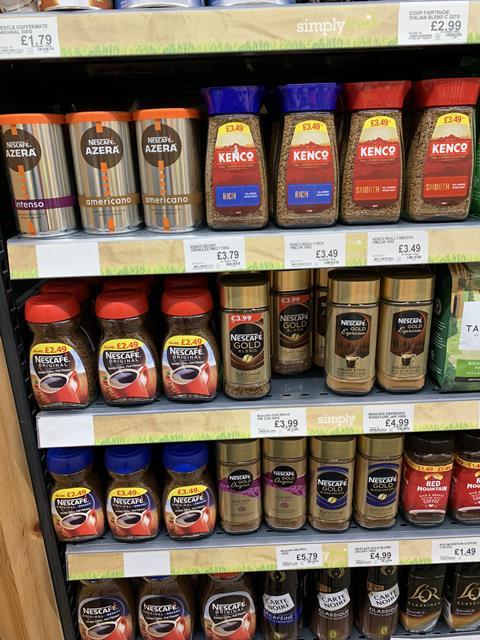
- On average, coffee shoppers visit more frequently, dwell longer in store and spend twice as much as the average shopper, up to £13.09 per trip (HIM & JDE, Packaged coffee in wholesale and convenience, May 2019)
- 80% of UK households buy instant coffee for in-home consumption, particularly those aged 65 and older (The British Coffee Association)
- Distress top-up is the most common driver for purchasing packaged coffee in the convenience channel, with 47% of shoppers stating it is the most common reason for purchasing (HIM! & JDE, Packaged coffee in wholesale and convenience, May 2019)




















